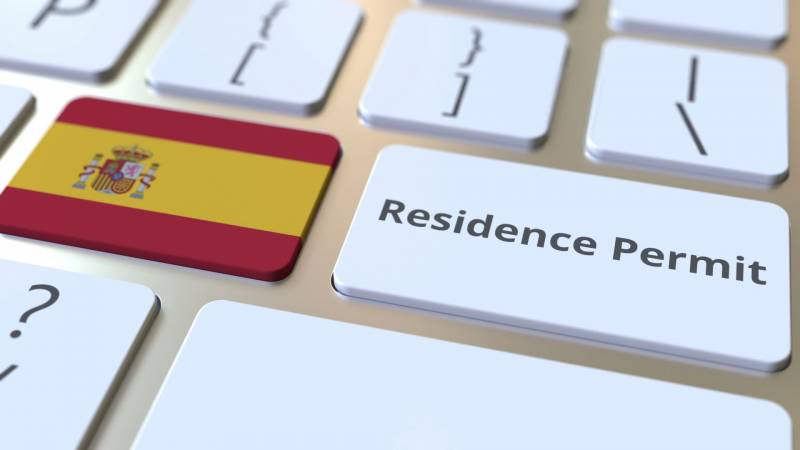article_detail
Immigration to Spain from the UK in 2024: What should you consider?
Discover the process for moving to Spain and obtaining residency as a foreigner

Whilst many Brits dream of a life in the Spanish sun, to move to Spain permanently you must first consider the various Spanish immigration laws. For help click Spanish immigration lawyer.
Can I move to Spain?
Spain offers a variety of visa types to both EU and non-EU citizens. The immigration process depends on individual circumstances, however, all applicants must comply with Spanish immigration rules and meet the specified requirements to immigrate to Spain.
Requirements to immigrate to Spain
Passport requirements
Perhaps most importantly, to be granted entry to Spain, you must first meet the country’s passport requirements. For example, your passport must have a ‘date of issue’ less than 10 years before the date you arrive in Spain and an expiry date of at least 3 months after the date you are due to leave. If these requirements are not met, you will be denied entry. In addition, it is important to note that you cannot travel on a passport that has been reported as lost/stolen.
Vaccine requirements
The Spanish government requires all travellers to be vaccinated against certain infectious diseases and there are country-specific requirements that applicants must meet to gain entry. Those travelling from the UK should be up to date with all vaccination courses and boosters as recommended by the UK government. Furthermore, anyone with an increased risk of infectious disease due to underlying health conditions should be up to date with any additional vaccines offered to them in the UK.
How to immigrate to Spain
If you’re an EU citizen or qualify for free movement under the exemptions for countries in the Schengen area, you have the right to travel to Spain for up to 90 days (within any 180 days) for tourism purposes without a visa. However, it is worth noting that Spain will be introducing a new entry/exit system (EES) for non-EU nationals in Autumn 2024. The system is to include those with exemptions (for example, British nationals) planning on a short stay.
The EES requires travellers to be registered electronically. Biometric data such as fingerprints and facial images will be held as a digital record on an IT system.
If you wish to stay longer and are a non-EU citizen, for example, a British national, you must obtain a visa to live and work in Spain. So long as you remain compliant with Spanish immigration law, after living/working in Spain for 5 years on your visa, you may then be able to apply for ‘permiso de residencia a larga duracion’ (permanent residency). Permanent residency grants you specific rights such as the right to live and work in Spain indefinitely, the right to access healthcare, or the right to vote in the country’s elections.
Spanish visa types
Spain offers a range of visa types and the one you need will depend on your circumstances and reasons for travel. Some visa-type examples include:
- Student visa
- Work visa
- Non-lucrative visa
- Family reunion visa
- Golden visa (for now, although there are plans to scrap it)
- Digital Nomad visa
Each visa type has specific requirements that applicants must meet to make an application. It is also important to note that each visa will have its own cost and financial requirements that should be considered before applying.
Immigration process to Spain for non-EU citizens
Due to Brexit, the majority of British nationals are classed as non-EU citizens and will therefore follow a similar process when attempting to immigrate to Spain. There are certain steps each applicant must take in preparation of their application:
- Explore the different visa options to discover which appropriately fits your circumstances.
- Be sure that you can meet the visa requirements and general requirements (such as passport and vaccine requirements) set out by Spanish immigration law.
- Check that you have the required financial resources to cover all moving costs. (This includes visa fees and travelling costs).
- Apply to the Spanish consulates (available in London, Edinburgh or Manchester) for your visa.
Once you have obtained your visa, there are further steps you should take to ensure your transition is as smooth as possible and that you are abiding by Spanish immigration law. For example:
- Become knowledgeable on Spanish customs rules and regulations before attempting to enter the country.
- Register your residency immediately (in line with legislation) upon entering Spain.
- Be sure to abide by all immigration laws whilst living/working on your visa.
- After 5 years you may apply for permanent residency.
How to apply for residency in Spain
All UK nationals living in Spain (including children) must register their residency on the central register of foreign Nationals or the ‘registro central de extranjeros’ and with their local town hall or ‘padrón municipal’.
Failure to do so could mean your removal from Spain.
If after 5 years you wish to make your stay permanent you may be able to apply to the Spanish government for permanent residency. However, there are some exceptions which may allow you to apply sooner. For example, those who take early retirement or those on student visas.
To apply for permanent residency, you must fill out the appropriate application form and provide all requested legal evidence to support it. This can include documents such as:
- Passport and current visa
- Copies of residence permits and registration certificates
- Proof of income
- Proof of healthcare coverage
- Utility bills
- Contracts
- Payslips
- Bank statements
- Tax returns
For further information on how to apply to live and work in Spain, you can contact the Spanish embassy in the UK.
Contact Spanish News Today: Editorial 966 260 896 /
Office 968 018 268




















